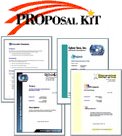The IsEmailBlocked( ) functionFirst I added the following lines to the top of my SendEmail function that is used throughout the site: (you might want to read my article about sending email if you haven't already) function SendEmail ( sFromEmail, sToEmail, sBccEmail, sSubject, sBody )
{
if ( IsEmailBlocked ( sToEmail ) )
return;
|
This tests the email address and doesn't send the email if it fails. The IsEmailBlocked function, also in utils/Email.asp, is very simple. Today, with a single blocked email in the list, I don't even use a database, opting instead to keep the list of blocked emails in a global variable, sBlockedEmails. // ============================================
// check that email hasn't been blocked to this address. send all data
// to webmaster (and optionally to blocked sender) if it has.
// ============================================
function IsEmailBlocked ( sEmail )
{
// make lowercase for the comparison
var sTest = '>' + sEmail.toLowerCase ( ) + '<';
if ( -1 != sBlockedEmails.indexOf ( sTest ) )
{
|
The email addresses are converted to lowercase characters and wrapped in >< to ensure that only the correct matches are found. If a match is found a new email is sent ot me, and the function returns true. // this email is blocked, so send me an email
var sBody = 'Someone has attempted to cause email to be sent to the email address "' + sEmail + '". As requested, the CoverYourASP site has blocked access to this email address. Below is all the information I could gather about the perpetrator:\n\n';
sBody += 'HTTP_USER_AGENT: ' +Request.ServerVariables ( 'HTTP_USER_AGENT' ) + '\n';
sBody += 'REMOTE_ADDR: ' +Request.ServerVariables ( 'REMOTE_ADDR' ) + '\n';
sBody += 'SERVER TIME:' + new Date + '\n\n';
sBody += 'If you have any questions about this email, or wish to stop receiving these notices of attempted abuse, please reply to this email.\n\nMember Services\nhttp://' + sHostDomain;
SendEmail ( 'MemberServices@' + sHostDomain, 'Abuse@' + sHostDomain, '', 'Email blocked', sBody )
return true;
}
|
| 


